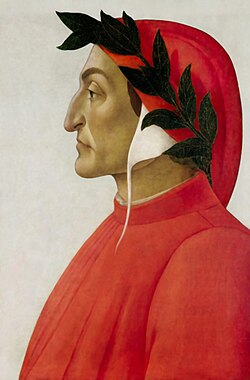Dante Alighieri Quote
My son, you've seen the temporary fireand the eternal fire; you have reachedthe place past which my powers cannot see.I've brought you here through intellect and art;from now on, let your pleasure be your guide;you're past the steep and past the narrow paths.Look at the sun that shines upon your brow; look at the grasses, flowers, and the shrubsborn here, spontaneously, of the earth.Among them, you can rest or walk until the coming of the glad and lovely eyes--those eyes that weeping, sent me to your side.Await no further word or sign from me:your will is free, erect, and whole-- to actagainst that will would be to err: thereforeI crown and miter you over yourself
My son, you've seen the temporary fireand the eternal fire; you have reachedthe place past which my powers cannot see.I've brought you here through intellect and art;from now on, let your pleasure be your guide;you're past the steep and past the narrow paths.Look at the sun that shines upon your brow; look at the grasses, flowers, and the shrubsborn here, spontaneously, of the earth.Among them, you can rest or walk until the coming of the glad and lovely eyes--those eyes that weeping, sent me to your side.Await no further word or sign from me:your will is free, erect, and whole-- to actagainst that will would be to err: thereforeI crown and miter you over yourself
Related Quotes
About Dante Alighieri
Dante chose to write in the vernacular, specifically, his own Tuscan dialect, at a time when much literature was still written in Latin, which was accessible only to educated readers, and many of his fellow Italian poets wrote in French or Provençal. His De vulgari eloquentia (On Eloquence in the Vernacular) was one of the first scholarly defenses of the vernacular. His use of the Florentine dialect for works such as The New Life (1295) and Divine Comedy helped establish the modern-day standardized Italian language. His work set a precedent that important Italian writers such as Petrarch and Boccaccio would later follow.
Dante was instrumental in establishing the literature of Italy, and is considered to be among the country's national poets and the Western world's greatest literary icons. His depictions of Hell, Purgatory, and Heaven provided inspiration for the larger body of Western art and literature. He influenced English writers such as Geoffrey Chaucer, John Milton, and Alfred Tennyson, among many others. In addition, the first use of the interlocking three-line rhyme scheme, or the terza rima, is attributed to him. He is described as the "father" of the Italian language, and in Italy he is often referred to as il Sommo Poeta ("the Supreme Poet"). Dante, Petrarch, and Boccaccio are also called the tre corone ("three crowns") of Italian literature.
